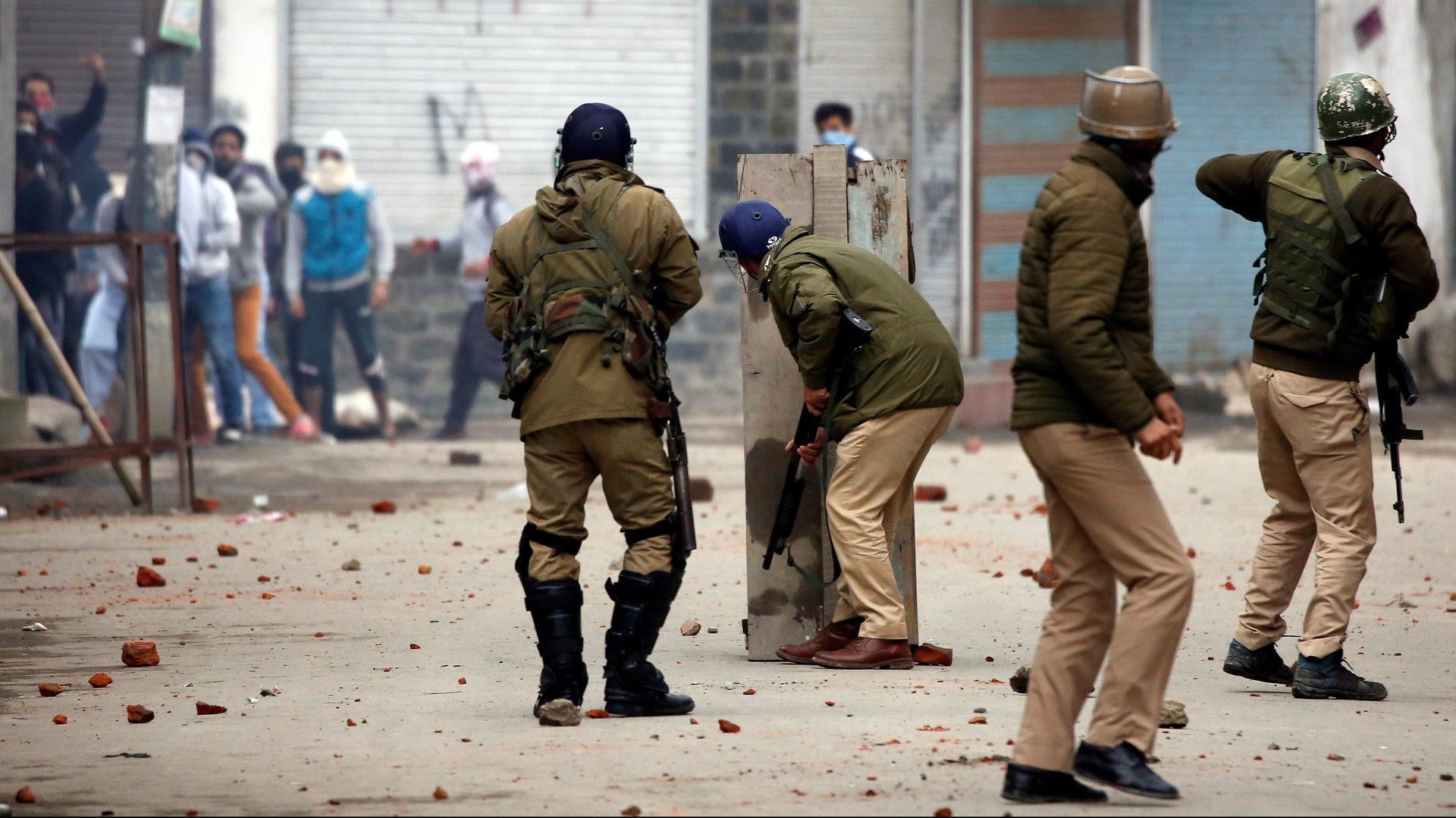India will have a difficult time resurrecting democracy in Kashmir
India’s unilateral redrawing of the borders of its restive Jammu & Kashmir (J&K) state yesterday (Aug. 5) could have far-reaching consequences on democracy and separatism in the region.


India’s unilateral redrawing of the borders of its restive Jammu & Kashmir (J&K) state yesterday (Aug. 5) could have far-reaching consequences on democracy and separatism in the region.
“One might argue that in an ironic way, the secessionist movement benefits from this move as it now has new momentum to push for separation from the state,” said Michael Kugelman, deputy director of the Asia Program at the Wilson Center, a non-profit based in Washington DC. “In effect, now that Kashmir will be formally integrated into the union of India, those that don’t want to be a part of India will feel more desperate, and therefore more emboldened to intensify their movement.”
The sledgehammer
In a surprise move yesterday, prime minister Narendra Modi’s government steamrolled two bills through parliament that also bifurcated J&K into two union territories, yielding more control to the national government. In effect, it modified Article 370 of the Indian constitution that gave J&K a special status among Indian states.
India had granted this special status when the state, at that time a monarchy, acceded to the country soon after independence from British colonial rule in 1947. That gave the state independence over all matters except defence, foreign affairs, and communication. It was partly the bedrock of J&K’s decision to join India.
Now that bedrock ceases to exist, not just in the abrogation of Article 370, but in the manner in which it was done.
Hours before introducing the bills, the Modi government ensured a complete information blackout in Kashmir valley, the Muslim-majority region of the state which has experienced secessionist activities as well as an armed insurgency sympathetic to Pakistan, India’s neighbour which has historically laid claim to the state. Internet, mobile, and telephone services have been cut off, and curfew has been imposed in capital Srinagar. Over 30,000 additional troops have been deployed in what is already among the world’s most militarised regions, with more on the way.
Meanwhile, the legal validity of these changes has been called into question. India’s constitution requires the support of the J&K state assembly for such legislation to be passed. But the assembly was dissolved after chief minister Mehbooba Mufti’s state government fell when Modi’s Bharatiya Janata Party pulled out from a coalition with her Jammu & Kashmir People’s Democratic Party in June 2018. The state was then brought under central rule until the next elections, due this year.
Destruction of pro-India politics
Pro-India political parties based in Kashmir have always run the state’s government, often in coalition with major national parties. But their already-strained relations with the Modi government have deteriorated after it ordered the arrest of former chief ministers and the state’s two biggest pro-India leaders, Omar Abdullah and Mufti, soon after they spoke against the new bills.
“The pro-India political establishment, however big or small, favoured participation in elections. Today, New Delhi has united and turned them against itself,” Khalid Shah, associate fellow at the New Delhi-based, non-profit Observer Research Foundation, told Quartz. “It has to be seen how they are replaced with new people.”
Voter turnout in elections had already plunged after the Modi government cracked down aggressively on protesters during the valley’s 2016 unrest. In the latest national elections, in which Modi returned to power, most of the voters did not cast their votes.
The information blackout has made it difficult to know Kashmiris’ reaction, but the heavy deployment of troops indicates that even the Indian government is anticipating protests and increased violence.